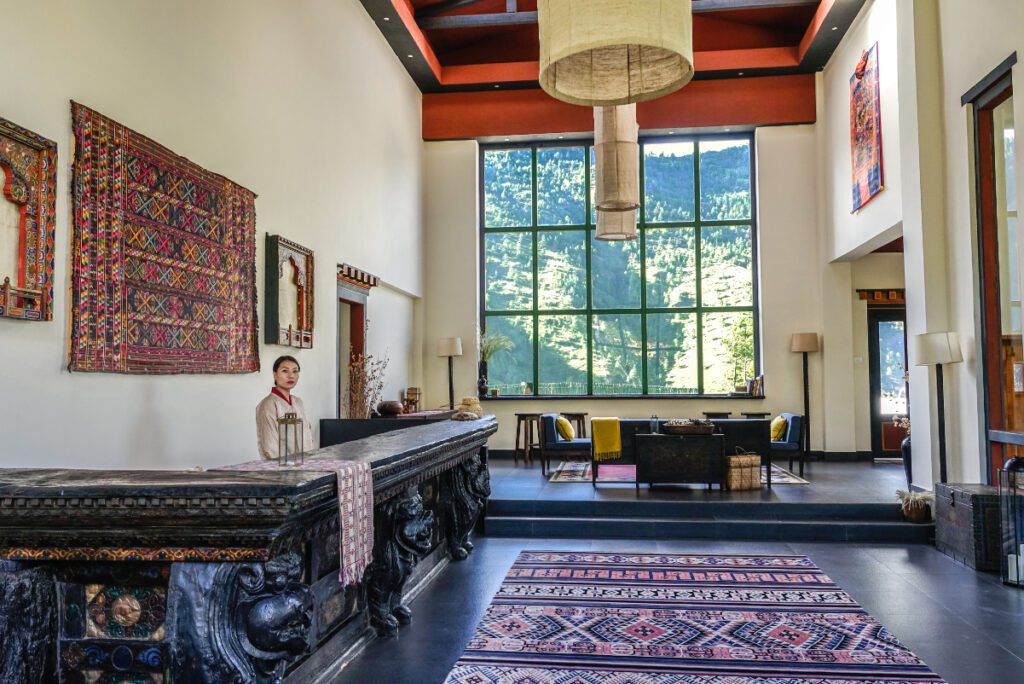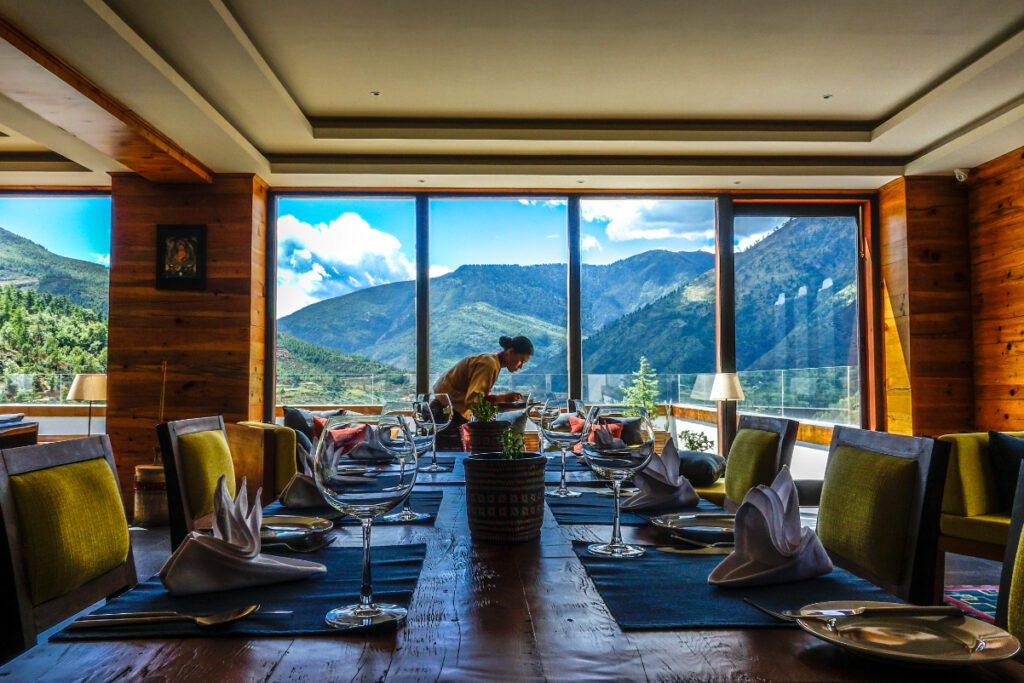Skift Take
There's always room for innovative entrepreneurs to create whitespace. Kapil Chopra, founder and CEO, thinks he's found some in the luxury boutique segment with his Postcard Hotel brand. Watch out, Aman, Six Senses, and One&Only.
The Postcard Hotel is a brand with momentum behind it. It was named Asia’s leading boutique hotel brand at the World Travel Awards in 2022. Even though the India-based brand only launched in 2018, it already has nine properties open, with another 23 under development.
When Kapil Chopra, founder and CEO, was looking to invent a luxury hotel brand, he and his team scoured review sites, searching for the biggest hotel-related pain points that irked guests.
“We studied all the top brands in the world, and we said, what are the three things people really get upset about?” Chopra said.
“Our point of view is that to be building the foremost luxury hospitality company of the world needs to come from the land of the Maharajas, it needs to come from India, and that’s what our game is,” Chopra said.
His team discovered that, among other things, luxury travelers don’t want to worry about what time they need to check into, or check out of, their hotel. Nor do they want to stress about what time the breakfast service ends.
By addressing these and other problems, The Postcard Hotel has taken a systematic approach to customer service.
The momentum is palpable. But at this pace, can they keep up the service that’s provided them their early accolades?
Drafting the Postcard Brand
Before launching his brand, Chopra was the president of Oberoi hotels in India for over five years, and at that time noticed that three brands were leading the luxury leisure travel space: Aman, Six Senses, and One&Only.
“I saw these three chains as maybe the only guys doing what I call ‘transformative travel,’ which is beyond experiential,” Chopra said. “It’s travel that stays with you much longer after you’ve left the hotel.”
Still, he saw a problem with each of these major transformative travel companies.
“I was looking at them very carefully,” Chopra said. “The common factor with these brands was that the founders had lost control of the brands they created, which was huge.”
Whether they were sold or had new management, the three key players no longer had the founder’s touch, which Chopra believes is crucial to creating a unique, forward-thinking luxury brand. This, Chopra thought, was a gap he could fill.
He also noticed a change in the type of guests staying at certain Oberoi hotels. In the early 2000s at the Oberoi Udaivilas, Udaipur, occupancy comprised 8 percent of travelers from India and 92 percent of foreigners. By 2018, he saw a major shift, with 52 percent of occupancy made up of travelers from India and a mere 48 percent foreigners.
“So, suddenly in India, which had now become a slightly richer country, people no longer felt guilty about spending on vacation travel, even at very high rates,” Chopra said.
The combination of more spending on domestic luxury getaways and guests wanting a hotel brand with an owner’s point of view helped Chopra find this luxury niche.
“It was a very clear indication in the market that India was ready for a luxury hospitality brand rooted out of India that was personality-led,” Chopra said.

Putting a Stamp on the Brand
Chopra has created a blueprint for The Postcard Hotel that’s clicked with guests and has allowed him to charge high room rates (their new hotel, The Postcard on the Arabian Sea in Karnataka, averages $700 a night, he said, while others in the area charge around $70).
First, it’s the location. The Postcard Hotel tries to find destinations with either no, or not too many, competitors. They were the first to do a luxury property in Gujarat at the Gir Wildlife Sanctuary (so guests could get up close and personal with the Asiatic lions). They’ll also be the first property to open in the northeast state of Assam, The Postcard in the Durrung Estate, with 12 rooms on top of tea gardens.
Because The Postcard Hotel has an emphasis on leisure travel, Chopra is skipping big city destinations (for now) and only selecting a location if it’s a seaside town, in the mountains, at a wildlife reserve, in a historical palace, or in a wine or whisky states (he’s open to the idea of say, a future Postcard Hotel in the Champagne region of France).
“In these five cases, the story of the destination is bigger than the story of the hotel, and isn’t that what travel is about?” said Chopra. “Our point of view, when you think of a leisure category, is we need to be there, and we need to be there globally.”
Chopra also makes sure, of course, that there are plenty of local, transformative experiences. For example, guests at the Assam property will be able to harvest their own tea, put it through the drying process, and pack the tea to take it home. Then, The Postcard Hotel has a tea subscription service, so you have fresh tea every month.
“That’s transformative travel — long after you’ve gone, I’m still able to touch your soul,” said Chopra.
As part of The Postcard Hotel formula, Chopra is also going to great lengths to avoid the key pain points that bother high-end travelers.
“People don’t like to be told when to check in and check out,” said Chopra. “At the highest end of the market, people are making billion-dollar decisions in their everyday lives, so they don’t need to be told like schoolchildren, check in at 2 p.m. and check out at 10 a.m.”
Also, he discovered that people on holiday don’t want to be told when to have breakfast and that many luxury travelers don’t like when alcohol markups are too high.
So guests at a Postcard Hotel can check in and check out at any time of the day without being charged extra. Guests can also have breakfast at any time. The food promises to be authentic and regional, cooked with the local spices unique to that area (so you won’t find a basket of croissants sitting out). As for the alcohol?
“The local alcoholic beverages will also be from the region, and when you check in to the hotel, to make sure your mind is not burdened, you can have as many as you want,” said Chopra. In Goa, for example, guests are served cocktails with feni, the local liquor distilled from cashews.
As for his hotels’ designs, Chopra tries to use regional, sustainable materials whenever possible, restore buildings with heritage, and incorporate local design elements to prevent a copy-paste effect.
“In the luxury resort hospitality space, not much innovation has happened, except bathrooms have gotten bigger and bigger,” said Chopra. “You can pick up a room from Goa and put it in Singapore and Singapore back into Goa, and people wouldn’t know the difference.”
Sending a Message
While many newcomers in the hospitality space were hit hard during the pandemic, The Postcard Hotel found itself at the right place at the right time.
The brand keeps its properties small. No hotel is over 60 rooms, so service remains highly personalized. Because travelers didn’t want to stay at larger properties during the pandemic, The Postcard Hotel came out ahead and ran full after the first lockdown, with revenues growing 55 percent year-over-year.
Its biggest win, though? Covid forced domestic travel.
“The most important people in India and the richest people in India could not travel outside of India, so they were forced to come and experience The Postcard hospitality in a way,” said Chopra. “Everyone on the arrival list was pretty much India’s who’s who.”
Because those important guests shared their experiences on social media, it raised brand awareness — garnering it more PR and visibility than it would have gotten if there had been no pandemic.
Now, The Postcard Hotel has locations not only in India but also in Sri Lanka and Bhutan and is ready to expand further, whether that’s in Austria or Africa.
“I knew that India had a big enough domestic market to support a super luxury brand that starts from India and takes over the world,” said Chopra. The Postcard Hotel, he hopes, will deliver on that hunch.
Skift India Report
The Skift India Report is your go-to newsletter for all news related to travel, tourism, airlines, and hospitality in India.
Tags: boutique hotels, future of lodging, hotel development, india, luxury hotels, postcard hotel
Photo credit: With no more than 15 luxurious rooms, the hotel is the perfect place to wind down in the lap of nature and enjoy pristine views of the Khasadrapchu Valley in Bhutan. Source: The Postcard Hotel.
